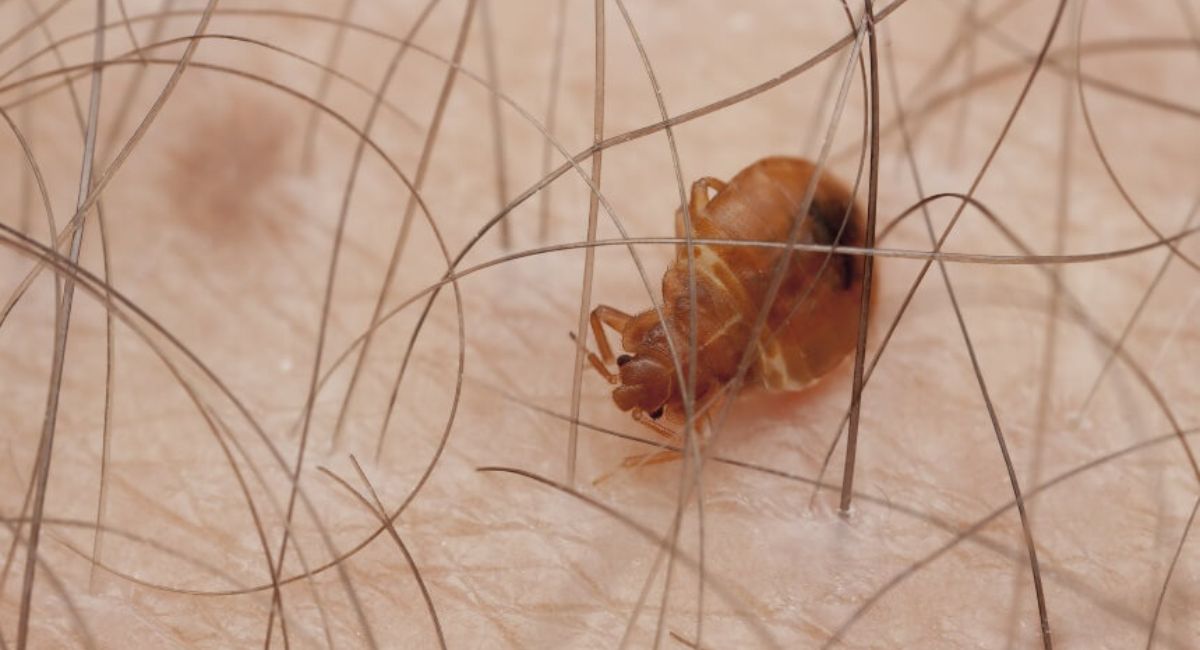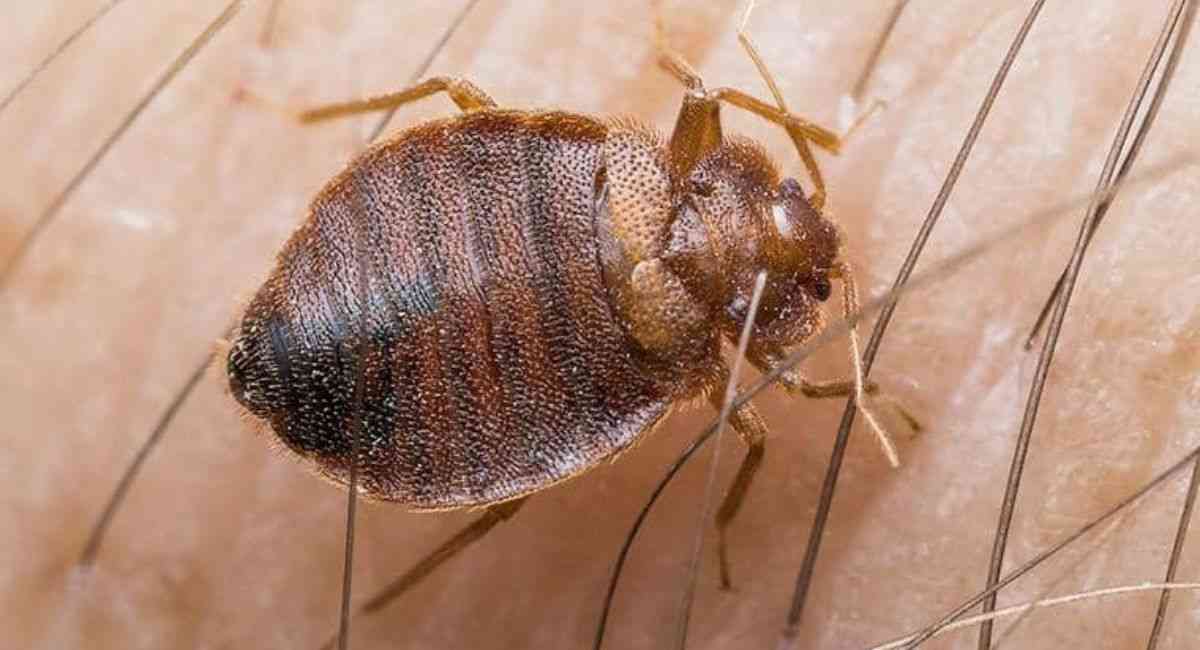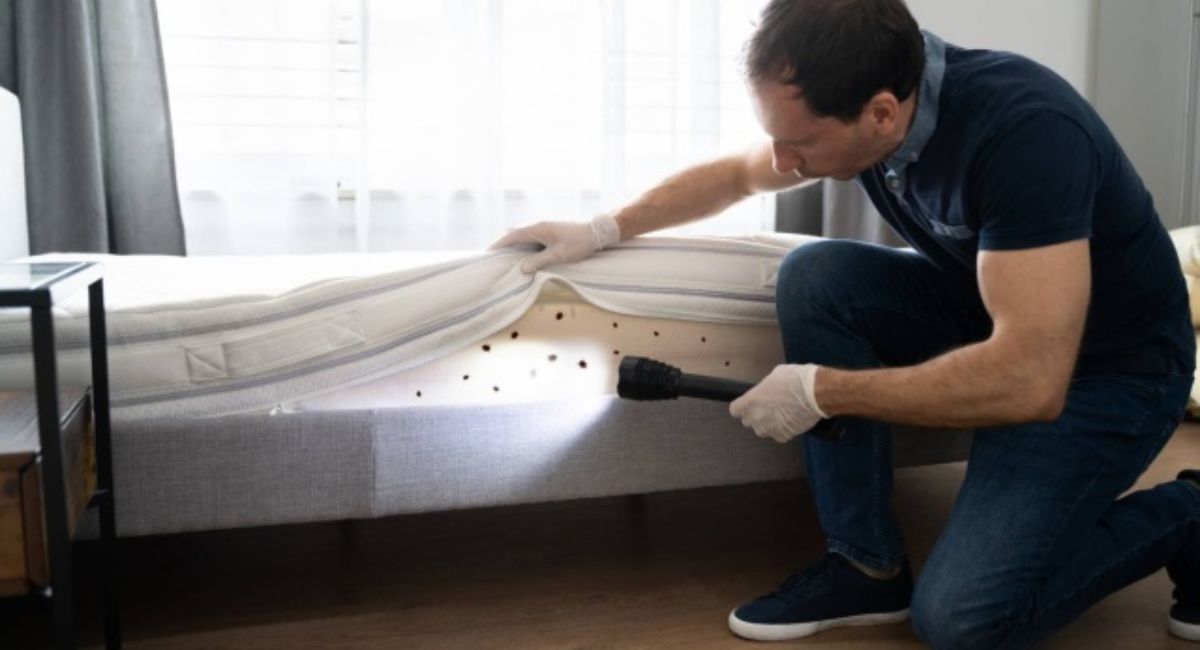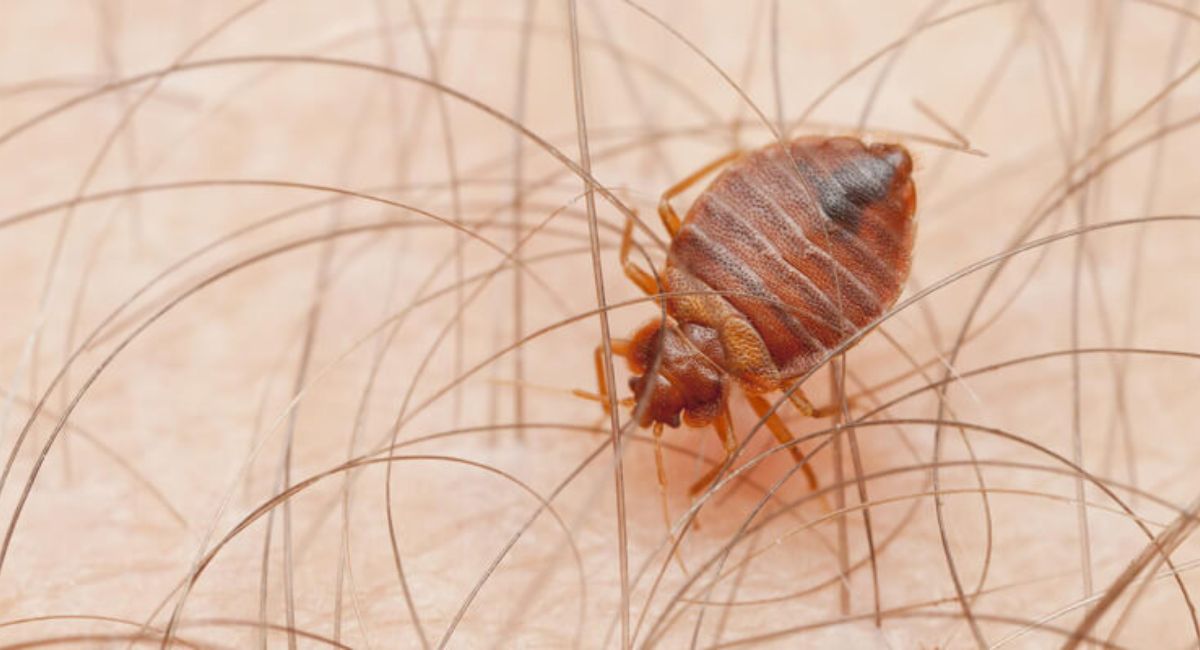Ever felt something crawling on your head and instantly panicked, wondering if it could be bed bugs? You’re not alone. Many people wake up itching and start to fear the worst — that these tiny pests might have moved from the mattress to their scalp. The thought alone can make your skin crawl and your mind race with questions.
If you’ve been asking yourself, “Can bed bugs live in your hair?”, this guide is exactly what you need. Here, you’ll find clear answers from experts, real facts about bed bug behavior, and practical steps to handle the problem safely. By the end, you’ll know whether these bugs can actually live on your scalp and how to protect yourself for good.
What Bed Bugs Really Are and How They Behave
Bed bugs, known scientifically as Cimex lectularius, are small, reddish-brown insects that feed on human blood. They are nocturnal and prefer to hide during the day in cracks, mattresses, furniture, and bedding. They come out at night to feed, usually when you’re sleeping. While you might wonder, can bed bugs live on the human body, experts say they prefer flat, open areas like your back, arms, and neck — not your scalp.
Bed bugs are poor climbers when it comes to hair. Unlike lice or fleas, their legs aren’t designed to cling to strands of hair or move easily across the scalp. That’s why why bed bugs avoid hair — it’s simply too hard for them to navigate. They prefer smooth skin where they can easily pierce and feed.
| Feature | Bed Bugs | Lice | Fleas |
|---|---|---|---|
| Size | 4–5 mm | 1–3 mm | 2–4 mm |
| Habitat | Mattresses, furniture | Hair and scalp | Pets and carpets |
| Feeding Time | Night | Constant | Anytime |
| Movement | Crawl slowly | Crawl quickly | Jump |
Why You Might Think Bed Bugs Are in Your Hair
Many people confuse scalp itching with bed bug bites. In reality, bed bug bites on scalp are rare because these insects don’t nest in hair. However, when they bite near your hairline, the itching and irritation can make it feel like something’s crawling. That’s how the myth of bed bugs on scalp began.
Sometimes, stress or anxiety after an infestation leads people to imagine crawling sensations — a condition called formication. It’s also possible to find bed bugs in bedding and clothing, which can brush against your hair at night, adding to the confusion. Knowing how to tell if you have bed bugs in your hair helps separate fact from fear.

Can Bed Bugs Actually Live on the Scalp or Skin?
Scientific studies show bed bugs can’t survive long on the scalp. The thick hair, constant movement, and natural oils make it difficult for them to stay. So while can bed bugs crawl through hair for a short time, they can’t make a permanent home there. They simply feed and retreat to their hiding spots.
Bed bugs don’t burrow under your skin like scabies, nor do they attach like lice. They bite, feed for a few minutes, and hide again. So if you’re worried and wondering do bed bugs hide in hair, the answer is no — their biology prevents them from doing so.
Can Bed Bugs Lay Eggs in Your Hair or on the Body?
A common fear is that bed bugs might lay eggs in human hair. Fortunately, that’s a myth. Bed bugs need stable, hidden surfaces to lay eggs — not moving, oily scalps. You won’t find bed bug eggs in hair, but you might find them tucked in mattress seams, baseboards, or furniture joints.
Experts confirm that unlike lice, bed bugs don’t use hair shafts as anchors for their eggs. They rely on still, dry environments to reproduce. So if you suspect bites near your scalp, it’s likely caused by bugs that crawled up from your bedding, not ones nesting in your hair.
Bed Bugs vs. Lice and Fleas — Spot the Difference
Understanding the difference between lice and bed bugs is key. Lice stay on the scalp and lay eggs (nits) on hair strands. Bed bugs, on the other hand, come out at night to feed and hide during the day. Fleas prefer pets but can bite humans too. The table below can help you spot the difference between bed bugs vs lice and bed bugs vs fleas.
| Insect | Where They Live | Can They Stay in Hair? | Common Bite Area |
|---|---|---|---|
| Bed Bugs | Mattresses, furniture | No | Neck, arms, back |
| Lice | Human scalp | Yes | Scalp, behind ears |
| Fleas | Pets, carpets | Rarely | Legs, ankles |
Signs You Might Have Bed Bugs Around You (Not in Hair)
If you wake up with itchy red marks, it might not be lice — it could be bed bugs nearby. The signs of bed bug infestation often include small blood stains on sheets, rusty spots on bedding, or dark specks (droppings) on your mattress. You may also notice a sweet, musty odor, especially near headboards or couches.
To confirm signs of bed bugs in your home, inspect your mattress seams, box springs, and wall edges. Remember, they hide in tight spots, not inside your scalp. Learning how to identify bed bug bites on scalp helps you distinguish them from allergic reactions or lice bites.

How to Remove Bed Bugs from Hair and Body Safely
If you suspect a few bugs on your body, start with a hot shower. Research shows do bed bugs wash off in the shower — yes, they do. Use warm water and a gentle shampoo to clean your scalp. Bed bugs can’t survive heat or water for long, so washing works well. However, can bed bugs survive shampoo depends on the formula; normal shampoo won’t kill them, but it helps rinse them off.
You should also wash all bedding, pillowcases, and clothing in hot water. The what temperature kills bed bugs is at least 120°F (49°C). Once washed, dry them on the highest heat setting. This method is among the best ways for bed bug removal from hair and home surfaces.
Natural Remedies and Home Treatments for Bed Bugs
Many people prefer natural bed bug remedies instead of harsh chemicals. Essential oils like tea tree, neem, and lavender can repel bugs. Vinegar, steam, and baking soda are also helpful. If you’re wondering how to get rid of bed bugs naturally, maintaining cleanliness and using high heat regularly works wonders.
However, these home remedies for bed bug bites can soothe itching but won’t eliminate a large infestation. The key is persistence. Regular cleaning, vacuuming, and washing are crucial steps for bed bug treatment at home that truly work.
When to Call a Professional Pest Control Service
Sometimes, home remedies aren’t enough. If you notice continuous bites, visible insects, or growing stains, you may need professional pest control for bed bugs. Experts use heat treatments, steam, and non-toxic solutions that can reach deep hiding spots. They also help determine what causes bed bug infestations in your home so you can prevent them.
A good exterminator knows how to kill bed bugs fast and safely. Look for licensed professionals with good reviews in your area. They’ll not only treat your home but guide you on how to stop bed bugs from coming back with follow-up checks and preventive products.

How to Prevent Bed Bugs from Coming Back
The best defense is prevention. Always inspect hotel beds and luggage when traveling — bed bugs after travel are a major cause of infestations. Wash your clothes as soon as you return home. Vacuum carpets and clean your bedding regularly. This helps ensure bed bugs in bedding and clothing never become a problem again.
Avoid clutter, which gives bugs places to hide. Also, understand do bed bugs spread through clothes and how easily they hitchhike. Clean surroundings and good bed bugs and hygiene habits are your best weapons. The secret to long-term protection lies in what keeps bed bugs away naturally — cleanliness, heat, and awareness.
FAQs About Can Bed Bugs Live in Your Hair
1. How do you know if bed bugs are in your hair?
If bed bugs are in your hair, you may feel a crawling sensation on your scalp, experience small red bites near your hairline, or notice tiny dark spots (their droppings) on your pillow. However, bed bugs don’t live in hair like lice — they usually crawl out at night to feed and then hide elsewhere.
2. Where do bed bugs hide on your body?
Bed bugs don’t live on your body. They prefer warm areas close to where you sleep, like mattress seams, bed frames, or behind headboards. Still, they can bite exposed skin such as your arms, neck, face, and legs while you rest.
3. Do bed bugs wash off in the shower?
Yes, you can wash off bed bugs if they happen to be crawling on you. A shower with soap and warm water will remove them. But remember, the real problem is their hiding spots — you’ll need to treat your bedding, furniture, and room to stop them from coming back.
4. How to get rid of bed bugs in the hair?
If you think bed bugs are in your hair, wash it with hot water and a gentle shampoo. You can also use tea tree oil or neem-based shampoos for extra cleansing. Then, focus on treating your home — wash bedding in hot water, vacuum daily, and consider professional pest control for a full removal.
5. What time of day are bed bugs most active?
Bed bugs are night owls. They’re most active between midnight and 5 a.m., when you’re asleep and your body is still. That’s why most people wake up with fresh bites in the morning without realizing it happened overnight.
6. How do you draw bed bugs out of hiding?
You can lure bed bugs out by creating warmth and carbon dioxide — two things they love. Use a hair dryer on low heat around suspected hiding spots or set up bed bug traps near your bed. However, for a serious infestation, professional extermination is the most effective way to get them all.
Conclusion
So, can bed bugs live in your hair? Experts say it’s highly unlikely. These pests don’t have the ability to stay or reproduce in your scalp. They may bite near your head, but they prefer bedding, furniture, and cracks to call home. Bed bugs can’t survive on your body like lice or fleas.
If you ever face this issue, focus on how to clean bedding after bed bugs, use best pest control for bed bugs when needed, and follow preventive habits. Staying informed, calm, and proactive keeps both your home and your peace of mind bed bug-free.

